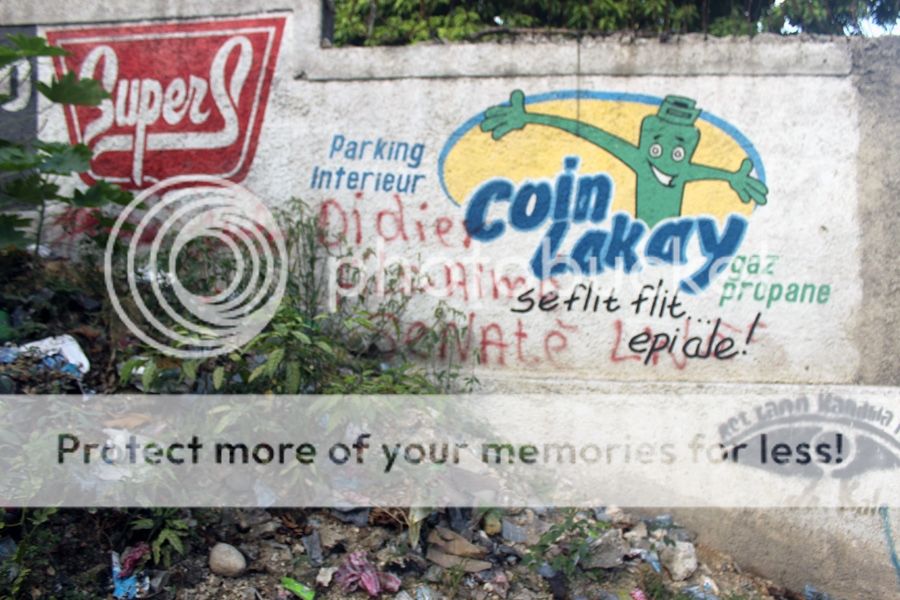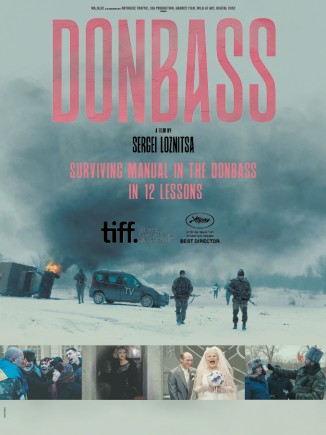Re: Purangi's Haitian Creole et al.
Posted: Wed Feb 20, 2019 8:00 am
Happy Year of the Pig! Let's start with a joke.
It’s been a long Chinese New Year vacation, but not an idle one. During the long flights over the South China Sea, I managed to finish four books - three in Haitian Creole and one in Spanish.
The first book is Yon koudey sou pwoblem lekol Ayiti (A look a the problems of schools in Haiti) by Emmanuel W. Védrine. It is an essay about the state of education in Haiti, but it goes far beyond that. Vedrine addresses in details and with much nuance the issue of the place of French and Creole in postcolonial Haiti, not only in schools but in other social spheres as well. The book also includes interviews with a number of linguists and specialists on specific issues such as the state of Creole-language printing industry in the USA and Haiti, the evolution of Creole language in the post-Duvalier era, etc.
This whole issue of French vs. Creole appears to be a major fault line in Haiti and the diaspora and is the subject of countless discussions and debates, etc. See, for example, this video by Marli, where she replies to some arguments against giving more prominence to Creole in Haitian schools.
Vedrine's book is interesting as it provides a number of specific examples of how Creole is changing and entering the field of politics post-1986. For example, the expression "pran beton" (to take to the streets) -- which originally meant "to take part in the carnival" or "to protest" -- and whose meaning has been expanded to mean "to take a position" and "to stand firm".
Védrine also talks about the issue of Creole orthography and appears to support André Vilaire Chéry's suggestion that the apostrophe (apostwòf) and hyphen (tirè) are not correctly used and perhaps superfluous.
Another example given by Védrine is the word dilatwa, from French dilatoire. This is typical legalese jargon - although most French speakers whether in France, Canada or Haiti understand it, it is not the kind of word that one would use in daily life. But due to the events that took place in Haiti post-86, the expression fè dilatwa (as well as dilatwayè, i.e. someone who fè dilatwa) became a very common expression to describe "grand parleur, petit faiseur" politicians and other "back-seat drivers". In fact, Marli uses the word in one of her recent videos to criticize part of the Haitian diaspora.
The two other Haitian Creole books are Sezon Sechrès Ayiti, also by Védrine, and Bryant C. Freeman's annotated version of Tonton Liben by Carrié Paultre. Both are works of fiction about the hardships of life in the Haitian countryside and are filled with colloquial expressions, proverbs and rural vocab making them much harder than academic, political or journalistic texts.
While I can more or less read non-fiction essays in Haitian Creole as the same speed and with the same ease as in Spanish, fiction is really where I tend to stumble. Going forward, I should focus more on Creole fiction and spend less time on news/non fiction, as its becoming too comfortable!
That being said, even Haitian Creole non-fiction is not without its challenges, especially when it comes to faux amis. The more I study Haitian Creole, the more I realize that I don't know what I thought I knew. There are so many identical words in French and in Creole, but with a completely different meaning. This gives me the false impression that I understand what is being said/written, when actually I am thinking of the French meaning. Here are a few examples where French and Creole meanings are different:
michan - (French: mean, cruel) HC: brave (but also mean, cruel)
filannegui - (French: one thing leading to another) HC: nicely and accurately
pentad - (French: dumb) HC: cunning
kwoke (French: to bite) HC: to hang, to hug
tikade - (French: 15 minutes), HC: 1 or 2 minutes?
bwòdè - (French: embroidery) HC: chic, classy
bòzò - (French: idiot) HC: chic, classy
atoufè - (French: handyman) HC: daring, capable of anything
san-frèt - (French: calm) HC: fearful
soukont li - (French: for himself) HC: alone
tilezanj - (French: little angel) HC: innocent
Much like Canadian French, Haitian Creole has its fair share of "anglicismes", such as bokit - bucket ; tyeke - to check ; konpwoutè - computer ; fyouz - fuse ; brekè - breaker ; deplogue - unplug.
Here are some other interesting expressions I found in the three books:
pedi e sak e krab - Meaning to lose both the bag and the crab inside the bag. Similar to "Jeter le bébé avec l'eau du bain"?
Bay pè lebren - To lynch by necklacing, apparently in reference to a tire shop's advertisement where the spokesperson - Monsieur Lebrun - wore a tire around his neck.
Bat dlo pou fè bè - To churn water to make butter, meaning to make ends meet.
Ayiti Toma - Meaning "My dear Haiti", apparently a deformation of Fr. Haiti à moi.
Entelektyèl komokyèl - Meaning pseudo scholar. Apparently, komokyèl comes from Spanish "como quieras'' and is used in widely different contexts. It can sometimes mean what English speakers refer to as bullshit (pawól komokyèl).
A good source to learn Creole expressions and slang is the "Word of the Day" series by Haitian comedian Se Joe - who also provided the joke above. It is particularly good as it covers terms considered rude and vulgar, which are not easily found in written literature. I intend to listen through to 2-3 words per day and this way slowly go through his entire series.
In other news, Duke University Library has an archive of Radio Haiti from 1957 to 2003. Most clips appear to be in French, but the show Pawòl la Pale has 315 archived shows in Haitian Creole. Audio quality is quite good and although shows are a bit dated, they offer a glimpse in a very interesting time in Haiti's history.
Also, I am progressing in Haitian Creole DLI, slowly but surely, as always!
---
In Spanish, I finished the book Bumerán Chávez: Los fraudes que llevaron al colapso de Venezuela by Emili J. Blasco, a mostly journalistic work describing the roots of many problems in today's Venezuela - a very interesting read to better understand the on-going crisis there.
I have also been reading daily news in Spanish on my phone. I downloaded the BBC Mundo mobile app, which gives me a daily dose of easy texts on a wide range of topics. I continue with my daily review of the most difficult FSI drills. I have started Linguaphone Institute - Spanish 2nd Stage. The course is Iberia-focused and full of interesting information. It's a nice review but I don't feel I learn much at this point, I benefit much more from listening podcasts such as Radio Ambulante and Epicentro.
---
During the Chinese New Year, I had the opportunity to travel to Indonesia, Malaysia and Singapore, where I met many local ethnic Chinese. In Singapore especially I was struck by how efficient the state has been in basically erasing all traces of local Chinese dialects from its public space. Everywhere in the city-state I heard and read standard Putonghua — with occasional glimpses of conversations in Hokkien. No Cantonese, except among Chinese tourists in the airport. The official Putonghua in public announcements, advertisements, and spoken in shops and restaurants is so good it's scary - much to my regret, I did not even detect any trace of Nanyang accent. Same thing with traditional characters -- almost nonexistent (they are perhaps even more visible here in Beijing)... It almost seems like Singapore has been more successful in its "bulldozing" approach to Mandarin than the PRC itself. But not everyone seems to agree with this and efforts are by local groups to maintain a bit of diversity in this otherwise beautiful city.
Indonesia and Malaysia are interesting in their own way. What intrigued me is how Chinese communities in both countries seem to have a completely different philosophy. Every time I came across ethnic Chinese in Malaysia, they spoke some form of Chinese languages. In Indonesia, every single local Chinese I saw spoke Bahasa in public.
---
With the New Year of the Pig, I decided to take on another small challenge of my own and get back to my first love, Slavic languages. To be more specific, I intend on starting Ukrainian! Unlike Korean, where I focus exclusively on basic speaking skills, my goal for Ukrainian is to be able to understand — both written and spoken languages, with the same ease as I do with Russian.
Transitioning from Russian to Ukrainian is, according to what I read online — fairly straightforward. Speaking fluently is, of course, another matter entirely. There is also a important Ukrainian community in my hometown, with their own festival and cultural center, etc., which will serve as an additional motivation.
I think I can get there using one course, one grammar, and immediately transitioning to native materials. Needless to say, learning resources are not ideal — no FSI, no DLI... — but at least there is no lack of interesting native materials. Interestingly, the only fully transcribed Ukrainian podcast I found (freely available) is called Через Біблію, the same one I use for Haitian Creole — Atravè Labib! We’ll see how it goes!
I'll be using Ukrainian for Speakers of English Text for a start. The course is heavily focused on grammar, which is exactly what I need at this point. My choice was motivated, among other things, by these reviews.
I also looked into Glossika Ukrainian as a potential resource and was very disappointed. According to reviews posted on Russian forums, the course is filled with mistakes and Russisms. It seems the translator might not be a fully competent speaker, at least not according to accepted standards in Ukraine. This mirrors similar problems with others Glossika courses.
For example, the course uses "неділя" to mean "week" (from Russian "неделя"), whereas it would be "тиждень" in Ukrainian.
There is also wrong use of prepositions, also mimicking Russian usage:
Another problem is bad translation due to English interference:
Interestingly, such bad translation means the Glossika Ukrainian course might actually be the first course in Surzhyk.
To be fair, those comments are from 2016, so there may be a newer improved version available now!
À+!
Toto nan klas. Pandan Toto nan klas komsa, men pwofesè ki ap rantre, madam Jocelyne, epi madam Jocelyne chape li, li chavire tèt anba, pidyou! De pye anlè! Oh!
Madam Jocelyne leve vap! Li di: Jòj, ki sa ou wè?
Jòj di: Ah, se janm ou sèlman mwen wè...
Madam Jocelyne di: Pran kaye ou, ale pase yon semenn lakay ou.
Li di: Ou, Memerik, ki sa ou wè?
Li di: Ah, mwen wè kuis ou...
Li di: Eh! Pran valiz ou ale pase yon mwa lakay ou.
Mem kote li di sa, Toto kòmanse ramase kaye li, li mete nan valiz li, li leve, li prale.
Madam Jocelyne di: Oh! Toto! Kote ou prale?
Toto di: Madam Jocelyne, pou sa m wè la, se vakans ou pral voye mwen fè lakay mwen.
Toto was in the classroom. As he was sitting there, his teacher -- Mrs. Jocelyne -- walked in. But she slipped and fell down! Her two legs up in the air! Oh!
Mrs. Jocelyne jumped back on her feet! She said, "George, what did you see?"
George said, Ah, I only saw your legs...
Ms. Jocelyne said: Take your books, go home and stay there for a week!
She said, And you, Memerik, what did you see?
He said, Ah, I only saw your thigh...
She said, Eh! Take your backpack, go home and stay there for a month!
As she was saying that, Toto started putting his books in his backpack, he got up and walked out.
Ms. Jocelyne said: Oh! Toto! Where are you going?
Toto said, Ms. Jocelyne, with what I saw, you'll be sending me home for the whole vacation.
It’s been a long Chinese New Year vacation, but not an idle one. During the long flights over the South China Sea, I managed to finish four books - three in Haitian Creole and one in Spanish.
The first book is Yon koudey sou pwoblem lekol Ayiti (A look a the problems of schools in Haiti) by Emmanuel W. Védrine. It is an essay about the state of education in Haiti, but it goes far beyond that. Vedrine addresses in details and with much nuance the issue of the place of French and Creole in postcolonial Haiti, not only in schools but in other social spheres as well. The book also includes interviews with a number of linguists and specialists on specific issues such as the state of Creole-language printing industry in the USA and Haiti, the evolution of Creole language in the post-Duvalier era, etc.
This whole issue of French vs. Creole appears to be a major fault line in Haiti and the diaspora and is the subject of countless discussions and debates, etc. See, for example, this video by Marli, where she replies to some arguments against giving more prominence to Creole in Haitian schools.
Vedrine's book is interesting as it provides a number of specific examples of how Creole is changing and entering the field of politics post-1986. For example, the expression "pran beton" (to take to the streets) -- which originally meant "to take part in the carnival" or "to protest" -- and whose meaning has been expanded to mean "to take a position" and "to stand firm".
Si yon moun di kounyeya «ou pran beton an», se pa sèlman pou al nan kanaval sou Chandmas men ou 'pran beton an' pou fè pase yon revandikasyon, pou fè pase yon dwa, pou fè pase yon «priz de pozisyon» ke w genyen. Se nan sans sa a 'beton an' vin pran yon siyifikasyon politik. 'Beton an' se la ke moun defann dwa yo, se youn nan kote moun defann dwa yo, se youn nan kote moun fè pase revandikasyon yo.
Védrine also talks about the issue of Creole orthography and appears to support André Vilaire Chéry's suggestion that the apostrophe (apostwòf) and hyphen (tirè) are not correctly used and perhaps superfluous.
Nou suiv sa yo rele ‘òtograf ofisyèl’ la lan tout sa li mande. Tout liv oubyen dokiman Éditions Deschamps sòti respekte òtograf sa a alalèt. Yon sèl ti eksepsyon petèt, se kesyon apostwòf nou pa anplwaye aprè de gwoup kòm ‘m ap’ (m'ap); ‘sa k ap fèt?’ (sa k'ap fèt?), elt. Natirèlman, nou obsève yon espas blan pou make elizyon an oubyen kontraksyon an. Aktyèlman an(n) Ayiti, nou kwè se sa pifò moun k ap itilize òtograf ofisyèl la fè. Yo pa vrèman itilize tirè (‘tirè’) nonplis: ‘chèz la’, olye: ‘chèz-la’...».
Another example given by Védrine is the word dilatwa, from French dilatoire. This is typical legalese jargon - although most French speakers whether in France, Canada or Haiti understand it, it is not the kind of word that one would use in daily life. But due to the events that took place in Haiti post-86, the expression fè dilatwa (as well as dilatwayè, i.e. someone who fè dilatwa) became a very common expression to describe "grand parleur, petit faiseur" politicians and other "back-seat drivers". In fact, Marli uses the word in one of her recent videos to criticize part of the Haitian diaspora.
The two other Haitian Creole books are Sezon Sechrès Ayiti, also by Védrine, and Bryant C. Freeman's annotated version of Tonton Liben by Carrié Paultre. Both are works of fiction about the hardships of life in the Haitian countryside and are filled with colloquial expressions, proverbs and rural vocab making them much harder than academic, political or journalistic texts.
While I can more or less read non-fiction essays in Haitian Creole as the same speed and with the same ease as in Spanish, fiction is really where I tend to stumble. Going forward, I should focus more on Creole fiction and spend less time on news/non fiction, as its becoming too comfortable!
That being said, even Haitian Creole non-fiction is not without its challenges, especially when it comes to faux amis. The more I study Haitian Creole, the more I realize that I don't know what I thought I knew. There are so many identical words in French and in Creole, but with a completely different meaning. This gives me the false impression that I understand what is being said/written, when actually I am thinking of the French meaning. Here are a few examples where French and Creole meanings are different:
michan - (French: mean, cruel) HC: brave (but also mean, cruel)
filannegui - (French: one thing leading to another) HC: nicely and accurately
pentad - (French: dumb) HC: cunning
kwoke (French: to bite) HC: to hang, to hug
tikade - (French: 15 minutes), HC: 1 or 2 minutes?
bwòdè - (French: embroidery) HC: chic, classy
bòzò - (French: idiot) HC: chic, classy
atoufè - (French: handyman) HC: daring, capable of anything
san-frèt - (French: calm) HC: fearful
soukont li - (French: for himself) HC: alone
tilezanj - (French: little angel) HC: innocent
Much like Canadian French, Haitian Creole has its fair share of "anglicismes", such as bokit - bucket ; tyeke - to check ; konpwoutè - computer ; fyouz - fuse ; brekè - breaker ; deplogue - unplug.
Here are some other interesting expressions I found in the three books:
pedi e sak e krab - Meaning to lose both the bag and the crab inside the bag. Similar to "Jeter le bébé avec l'eau du bain"?
Bay pè lebren - To lynch by necklacing, apparently in reference to a tire shop's advertisement where the spokesperson - Monsieur Lebrun - wore a tire around his neck.
Bat dlo pou fè bè - To churn water to make butter, meaning to make ends meet.
Ayiti Toma - Meaning "My dear Haiti", apparently a deformation of Fr. Haiti à moi.
Entelektyèl komokyèl - Meaning pseudo scholar. Apparently, komokyèl comes from Spanish "como quieras'' and is used in widely different contexts. It can sometimes mean what English speakers refer to as bullshit (pawól komokyèl).
A good source to learn Creole expressions and slang is the "Word of the Day" series by Haitian comedian Se Joe - who also provided the joke above. It is particularly good as it covers terms considered rude and vulgar, which are not easily found in written literature. I intend to listen through to 2-3 words per day and this way slowly go through his entire series.
In other news, Duke University Library has an archive of Radio Haiti from 1957 to 2003. Most clips appear to be in French, but the show Pawòl la Pale has 315 archived shows in Haitian Creole. Audio quality is quite good and although shows are a bit dated, they offer a glimpse in a very interesting time in Haiti's history.
Also, I am progressing in Haitian Creole DLI, slowly but surely, as always!
---
In Spanish, I finished the book Bumerán Chávez: Los fraudes que llevaron al colapso de Venezuela by Emili J. Blasco, a mostly journalistic work describing the roots of many problems in today's Venezuela - a very interesting read to better understand the on-going crisis there.
I have also been reading daily news in Spanish on my phone. I downloaded the BBC Mundo mobile app, which gives me a daily dose of easy texts on a wide range of topics. I continue with my daily review of the most difficult FSI drills. I have started Linguaphone Institute - Spanish 2nd Stage. The course is Iberia-focused and full of interesting information. It's a nice review but I don't feel I learn much at this point, I benefit much more from listening podcasts such as Radio Ambulante and Epicentro.
---
During the Chinese New Year, I had the opportunity to travel to Indonesia, Malaysia and Singapore, where I met many local ethnic Chinese. In Singapore especially I was struck by how efficient the state has been in basically erasing all traces of local Chinese dialects from its public space. Everywhere in the city-state I heard and read standard Putonghua — with occasional glimpses of conversations in Hokkien. No Cantonese, except among Chinese tourists in the airport. The official Putonghua in public announcements, advertisements, and spoken in shops and restaurants is so good it's scary - much to my regret, I did not even detect any trace of Nanyang accent. Same thing with traditional characters -- almost nonexistent (they are perhaps even more visible here in Beijing)... It almost seems like Singapore has been more successful in its "bulldozing" approach to Mandarin than the PRC itself. But not everyone seems to agree with this and efforts are by local groups to maintain a bit of diversity in this otherwise beautiful city.
Indonesia and Malaysia are interesting in their own way. What intrigued me is how Chinese communities in both countries seem to have a completely different philosophy. Every time I came across ethnic Chinese in Malaysia, they spoke some form of Chinese languages. In Indonesia, every single local Chinese I saw spoke Bahasa in public.
---
With the New Year of the Pig, I decided to take on another small challenge of my own and get back to my first love, Slavic languages. To be more specific, I intend on starting Ukrainian! Unlike Korean, where I focus exclusively on basic speaking skills, my goal for Ukrainian is to be able to understand — both written and spoken languages, with the same ease as I do with Russian.
Transitioning from Russian to Ukrainian is, according to what I read online — fairly straightforward. Speaking fluently is, of course, another matter entirely. There is also a important Ukrainian community in my hometown, with their own festival and cultural center, etc., which will serve as an additional motivation.
I think I can get there using one course, one grammar, and immediately transitioning to native materials. Needless to say, learning resources are not ideal — no FSI, no DLI... — but at least there is no lack of interesting native materials. Interestingly, the only fully transcribed Ukrainian podcast I found (freely available) is called Через Біблію, the same one I use for Haitian Creole — Atravè Labib! We’ll see how it goes!
I'll be using Ukrainian for Speakers of English Text for a start. The course is heavily focused on grammar, which is exactly what I need at this point. My choice was motivated, among other things, by these reviews.
I also looked into Glossika Ukrainian as a potential resource and was very disappointed. According to reviews posted on Russian forums, the course is filled with mistakes and Russisms. It seems the translator might not be a fully competent speaker, at least not according to accepted standards in Ukraine. This mirrors similar problems with others Glossika courses.
For example, the course uses "неділя" to mean "week" (from Russian "неделя"), whereas it would be "тиждень" in Ukrainian.
Украинское слово "неділя" означает только "воскресенье". Понятно, что миллионы людей с родным русским вставляют в свою украинскую речь русские слова, но это никак не может отменить нормы языка.
There is also wrong use of prepositions, also mimicking Russian usage:
"Вона розмовляє НА іспанськІЙ, але вона не розмовляє НА італЬянСКІЙ". Дно дна) даже анализировать не хочется этот бред, правильно будет "Вона розмовляє (без "на") іспанськОЮ, але вона не розмовляє (тоже "на" не нужно) італІйсЬкОЮ".
Another problem is bad translation due to English interference:
"Цей готель не дуже добрий", звучит это очень странно, ибо сие просто дословная калька с английского, я бы сказал "Я маю зауваження щодо готелю" или "Готель не відповідає моїм вимогам", но выражать недовольство в ключе "не хороший", просто смешно.))
Interestingly, such bad translation means the Glossika Ukrainian course might actually be the first course in Surzhyk.
To be fair, those comments are from 2016, so there may be a newer improved version available now!
À+!












_WEB.jpg)
